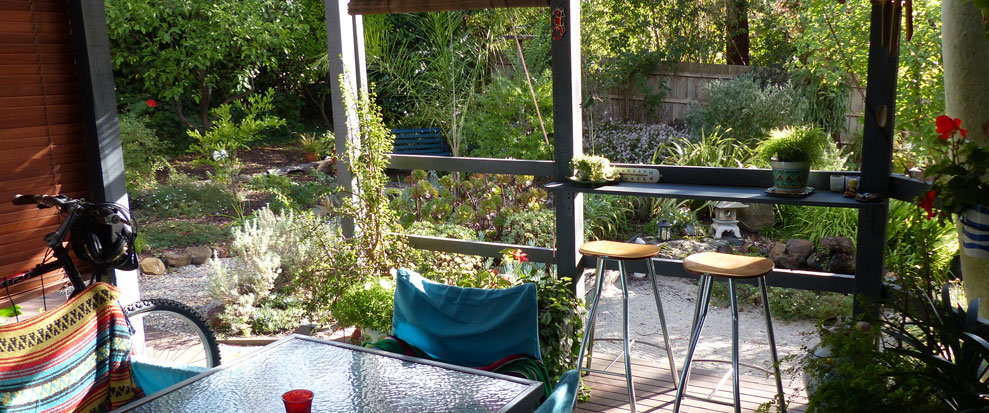Philosophic Living
By Jane McNab
The Observer, Issue 96, April 2014, quarterly journal of the School of Philosophy, Melbourne
What does it mean to live a philosopher’s life? Or Plato’s ‘Good Life’?
Maireid Sullivan's life is a model of Platonic virtue and wisdom. It has been a long life of many careers as various needs arose. Born in Ireland, she migrated with her family to the US when in her 12th year. When she was 20 she came to Australia on a holiday with her father - and stayed! She started performing traditional Irish songs at venues around Victoria.
Maireid had discovered Buddhism at age 15 when she started exploring religious beliefs. It became a cornerstone of security for her. She frequented the legendary Outpost Inn at 52 Collins St, which had been started by two Catholic priests, and which became a haven for students from Melb Uni. Her Buddhist training allowed her to debate central ideas without having to be seen in agreement with Catholic dogma. At 25 she was in Thailand studying Vipassana meditation and teaching English. She considered becoming a Buddhist monk or nun, but realised she could never have peace knowing that people in the world needed care. So she returned to the ‘world’ and went on to Ireland, working as a political researcher in Dublin. This gave her a strategic overview of issues in the European Economic Community in relation to international political matters.
She returned to Australia because her daughter needed to begin school, and they chose the Steiner School. Maireid joined the Anthroposophical Society and the Biodynamic Home Growers Association and taught singing and dancing at the school. She stopped touring with her musical performances and turned her skills to promoting other artists and found a gift for seeing talent in others and helping them to frame the way they communicated with the public. During this 7-year period she developed a high media profile while implementing marketing strategies for a variety of arts bodies, including the Victorian State Opera, Spoleto Festival/Melbourne International Festival of the Arts, consulting with Melbourne City Council contributing to its Cultural Tourism program, and as Arts and Tourism Convenor for the Committee for Melbourne. She brought her Buddhist contemplation on inner bliss to her work and found people who were expressing the very same vocational drive in the Arts. Her focus was on the heart of the arts and what was truly being said, as well as the connectivity with others.
During this time as an arts executive, over 10 years, she raised 3 step-children from age 2, 4 and 7, who were all ill with varying symptoms of allergies and stress. She changed their diet, gave them loving attention, sang and danced with them, went camping with them, and through loving care and good nutrition they overcame their autistic symptoms, allergies, eczema and bed wetting. It took about 3 years for the children to stabilise. Some years later, she faced a dramatic marriage breakup. She resorted to reciting positive aphorism to keep her mind under control and to manage her thoughts. She kept herself from being negative by finding things to celebrate and be thankful for. In considering all the possible career directions calling her, she decided the best thing she could do for the world was to find her voice again and sing. It was hard. She had to go about it methodically - selecting musicians, rehearse a band, and develop a creative collaboration. One of the musicians told her she had to write her own songs. Despite responding with ‘I can’t write songs’, the band members encouraged her to write. So one night she sat down and thought about songwriting - she knew her intellectual brain wouldn’t do it - she had to go deeper into her imagination. Drawing upon her love for the trance quality of traditional Irish songs, and the deep emotional historical story that they represent - the struggle, but with an appreciation of beauty inspiring the power of imagination. Making the connection with the ancientness of aboriginal cultural imagination and the dreamtime gave her the insight she needed, and a song emerged, Dreaming the Dreaming - a tour backward into the Celtic dreamtime. Lines such as, Recall what you knew when you were nursed in the sea of beginning, and, Relive the deep magic from beyond the first dawn, emerged. A melody also presented itself! And from then on, melodies, lyrics and prose poems poured forth. This was an aspect of her heritage she’d never given thought to before: I’d never imagined how western European wisdom might have flourished before the expansion of the Roman Empire, particularly how concepts such as Personal Sovereignty in ancient Celtic heritage might have impacted the lives of ancient European people.
Back to top
She immersed herself in this new field of knowledge and all of it affirmed the truth that people didn’t have time to explore their own ancient roots, or even the concept of their own ancient existence. An important insight came from reading John Montague’s The Slow dance. This series of prose poems culminated in a single man standing on the earth in the full force of nature’s elements - man so immersed in the drama of nature that no-one was meant to watch, least of all himself. With a thunderbolt of insight, Maireid realized that this was the best description of pre-consciousness that she had ever read! It led her to realise the opposite must be true for full consciousness, that everyone is meant to watch, most of all ourselves.
In 1995, Maireid travelled from Melbourne to Los Angeles to establish US distribution for her music, just before the Celtic genre became popular. For seven years, she toured extensively and recorded vocals for film and documentary soundtracks, and contributed to best-selling compilations in the Celtic music genre. (Three of her songs were featured on Billboard's World Music Top 10 charts for nine months in 1995/96.) Interleaf Press published Maireid’s first poetry collection 'Ancient Self - Memoirs' in 1997. Quarry Music Press published her book, 'Celtic Women in Music' in 1999. Her poems, essays and articles have appeared in many publications.
At a party in San Francisco, someone was playing a didgeridoo interpretation of the kookaburra, so Maireid copied the didgeridoo! Everyone laughed and kept asking her to do it again. Soon afterwards, Maireid noticed an article in the LA Times about laughing clubs in India... so Maireid started a laughter club in LA! At that time, she also incorporated laughter into her performances, using the kookaburra’s laugh to help get everyone laughing. Her Laughing Club adopted the kookaburra laugh and she started all club meetings with it. Now she laughs as much as she can at every opportunity! Laughter releases healing hormones.
Maireid describes her life as a series of epiphanies. In Ireland in 2000, filming interviews with Irish women in music based on her book, Celtic Women in Music (1999) one of the musicians, a Catholic theologian campaigning for the right of women to be priests, advised her to stop at the Grange Stone Circle, near Loch Gur in County Limerick. She said, Put your head to against the main stone and you will feel a fire go through your body. So, she did! With her eyes closed, she put her forehead against the main stone. An amazing visual picture appeared of a row of people in white gowns, and over her left shoulder one of them said, I’m longing to see the day when human beings will embrace their heritage of joy. Maireid is adamant: Those are not my words - I would never have thought them. But she does have a history of claiming she is protecting her joy.... so her mind has always been focused on joy. She said, We cue responses to wherever we are, anyway. This was really important to me - a significant epiphany. It took a year to figure out what the vision might have meant - there was very little documentation, but I eventually found that the stone had a name: chrom dubh - Dark Circle. What did Chrom Dubh represent? He was the Celtic God of the underworld before Christianity brought the god of light to the Celts. But the Celts had their own god of light, who was Lugh. When the Christians came, they took up the indigenous beliefs and integrated them - so Lugh became synonymous with Jesus. According to the ancient Celtic concept of Personal Sovereignty, we are all born embryonic gods and goddesses, and when we achieve maturity we have a filial duty to assist our kith and kin.
Maireid suggests the Celts understood that Jesus represented that type of maturity. So, Celtic Christianity, then, was an amalgamation of those ideas, promoting our potential to achieve Godhood. And furthermore, Maireid surmised that since chrom dubh is the god of the underworld, he also represents winter and hibernation, This must represent what was happening in the ground at that period of time. It must represent the activity of life forming in the spark of the seed. It’s an orgasm. The spark of life. Now that is our heritage of joy. That is where joy starts - in the spark of life. Therefore when we talk about joy - it’s not a human heritage, per se - it is the entire life system. And humans have forgotten that. It was a brilliant insight. It really impacts my feelings - to the core of my kidneys! It’s fundamental to our health. If we want to be really healthy beings we must embrace that truth, absolutely, with all of our capacity - because that is really living. Maireid believes that careers should be vocationally driven - in other words, we should give our all to be fulfilled in our career.
The 9/11 event had a big impact on her career. She had just sent a preview of her documentary film on Celtic women musicians in Ireland to US television networks, and then 9/11 happened. One month later she received a call saying that it was a lovely project but since 9/11 hard-hitting projects were now required. That dumbfounded me, because I knew that my work was not hard hitting... So she packed up and came back to Australia with Ben (love of her life). Right away, they began establishing their organic garden and they recorded her 3rd album, Never Drift Apart, which is the name of the song she wrote for Ben's birthday. Never Drift Apart represents their combined repertoire. Ben came from a jazz blues/ambient background.
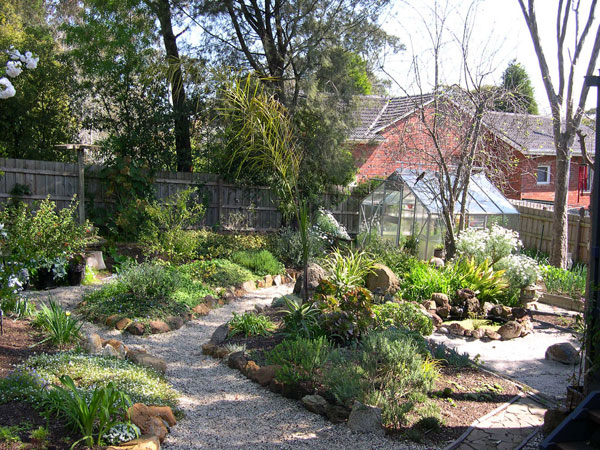
Back to top
Six months later, they went to the US to promote the new CD and on the last day of the tour, on the way to the airport to return to Australia, Maireid fell and broke her shoulder and had to cancel a forthcoming Australian tour.
While in the States, they bought the film editing software, Final Cut Pro, thinking they’d work out how to use it to edit the vast collection of nature footage they’d filmed during their years touring in concert across the USA. The broken shoulder ‘forced’ them to change their career direction, and so they practiced using the software for two years and produced their first film, the Award-winning ‘Time after Time, a celebration of the great heritage of ancient Celtic, American and Australian peoples.’ Maireid said, In keeping with our theme, celebrating the ancient heritage, we used our collection of nature footage and our own music to tell the story. It was such an amazing experience to have the freedom to take turns spending hours in front of the computer editing magnificent nature footage and many more hours working out in the garden. Following the success of the film, they launched their own multimedia production company, Lyrebird Media.
In 2007, they were contracted to film interviews with Classical Political Economists. Another major epiphany was my discovery of the concept of Economic Rent: (The income derived from the ownership of land and other free gifts of nature. Encyclopedia Britannica)
That collection and equal distribution of economic rent revenues instead of taxing productivity could enable economic justice for all people is the most profound learning of my life. And, just as surprising was the discovery that over the past 200 years many of our greatest intellectuals advocated removing land from speculation as the preferred economic model for bringing an end to poverty, and, which history is not taught at any curriculum level. This is the proverbial 'light at the end of the tunnel' of my hope and trust in the advance of human consciousness. If indeed 'everyone is meant to watch, most of all ourselves', then we are dependent on each other for ultimate good health and enlightenment. To my mind, taking ‘action’ in promoting economic justice is the be-all and end-all of a successful philosophic life. www.GlobalArtsCollective.org is my ‘art action’ platform.
By 2009, Maireid and Ben had developed an extensive veggie garden using BioDynamic compost and techniques to grow most of their own food, - a wide variety of leafy greens, onions and radishes, herbs, beans, peas, peppers, strawberries, tomatoes and so on. We pick our food when we need it. It is so easy to grow a salad. We eat them every day. The taste is so fresh and good.... doesn’t even need dressings! Then, Maireid discovered the wicking worm bed growing system, which features a water reservoir underneath the soil. They started with two above-ground 5m x 1m beds and now have 4. They found that, with shade cloth on hotter days, the vegies don’t wilt, and they have greater success than with vegies planted in-ground. She even wrote an eBook on how to build wicking worm beds:
See wickingbeds.htm
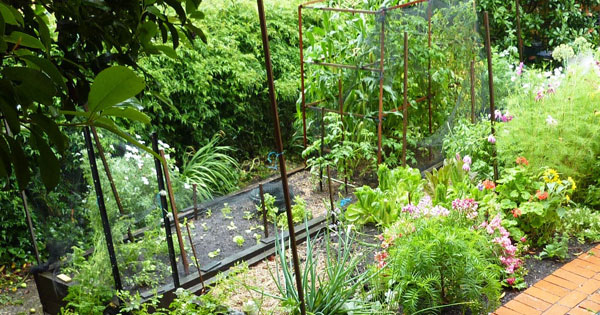
They intensified their focus on healthier eating as a response to illness. Ben used to like to eat bacon, eggs, and chips. He also drank 3 liters of sparkling mineral water every day and enjoyed sharing a bottle of wine over dinner. When he developed a stomach ache over Christmas 2010, they used Olive Leaf Extract, apple cider vinegar with hot water and honey, and acidophilus tablets, but the pains still didn’t go away. He tried antibiotics, and it still didn’t go away. A colonoscopy found a small sigmoid colon cancer - the operation was difficult and Maireid nearly lost Ben. However, the day he was initially diagnosed she gave him the book, The Biology of Belief, by Bruce H. Lypton, and that, together with music, helped him stay in the Zone (the Alpha State) that he needed to be in to stay whole. It saved his life. Lypton anthropomorphized the human cell by showing that the body is a community guided by the mind: 50 trillion cells in the body each have a brain, and a digestive and a reproductive system. ‘Our body replaces 1 billion cells every hour. Everything we think, feel, do, and eat in an hour influences that cell replacement more than stem cell therapy.’ Bruce Lypton
Maireid and Ben started testing their food's acid levels (pH), and found that Ben's sparkling water was acid! Any soft drink is acid. The penny dropped when I discovered that cancer cells evolved on Earth before oxygen and can not survive in an oxygen environment. Professor of Physics Paul Davies says we should target cancer at its weak point, which is that it cannot survive in oxygen. That realization became another profoundly important epiphany! A friend told them about bicarbonate of soda - Maireid found an organic supplier. They bought pH test strips and they test themselves 3-4 times per week, and they both started taking 1/4 tsp of bicarbonate of soda in a small cup of water before bed, to help maintain pH balance. They restrict drinking wine to the weekends and have biodynamic yoghurt every morning. Every couple of days they treat themselves to a yoghurt and fruit lassi or juiced vegies, and always have salad with dinner. Ben is now healthy and all is well! Maireid believes that after 50 you have to watch your health. Because we don’t run around like we used to, our metabolism slows and we may not be taking up the nutrients. So really watch the health. Keep yourself comfortable - if you’re not happy in your body, that’s a big distraction, and you can’t feel good. I feel great. I feel like a kid.
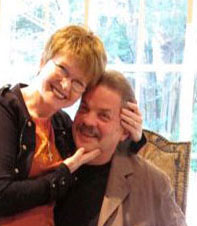 Maireid and Ben also treat themselves to a full massage every week. And they use magnets. Maireid hurt her shoulder and hand using a pick in the garden. She put magnets to the hand and after 2 days the lump and the pain had gone. Magnets draw circulation - heat - into the muscle. First thing in the morning is her most creative time. Very meaningful insights emerge. Relaxed creative thinking. Maireid and Ben also treat themselves to a full massage every week. And they use magnets. Maireid hurt her shoulder and hand using a pick in the garden. She put magnets to the hand and after 2 days the lump and the pain had gone. Magnets draw circulation - heat - into the muscle. First thing in the morning is her most creative time. Very meaningful insights emerge. Relaxed creative thinking.
She likes what the Dalai Lama says, that compassion is his religion. Rachel Kahn (ABC host) asked him about travelling and he says it is more important to get out and meet people. For Maireid, meeting people is the most important thing she does. You never know when you’re going to have a profound connection with somebody, and that’s what she’s looking for. I’m looking for beautiful connections with other people. That is the most important thing in the world, because if we radiate our inner joy and our inner being to everyone, then that serves humanity.
She is optimistic about issues facing the world at the moment - people are taking back their power on the internet, and those in positions of authority are realising that people on the ground are intelligent and have legitimate concerns and need to be listened to. That is another turning point in history! And one final quote: I have no problem with weeping - weeping and laughter have equal value.
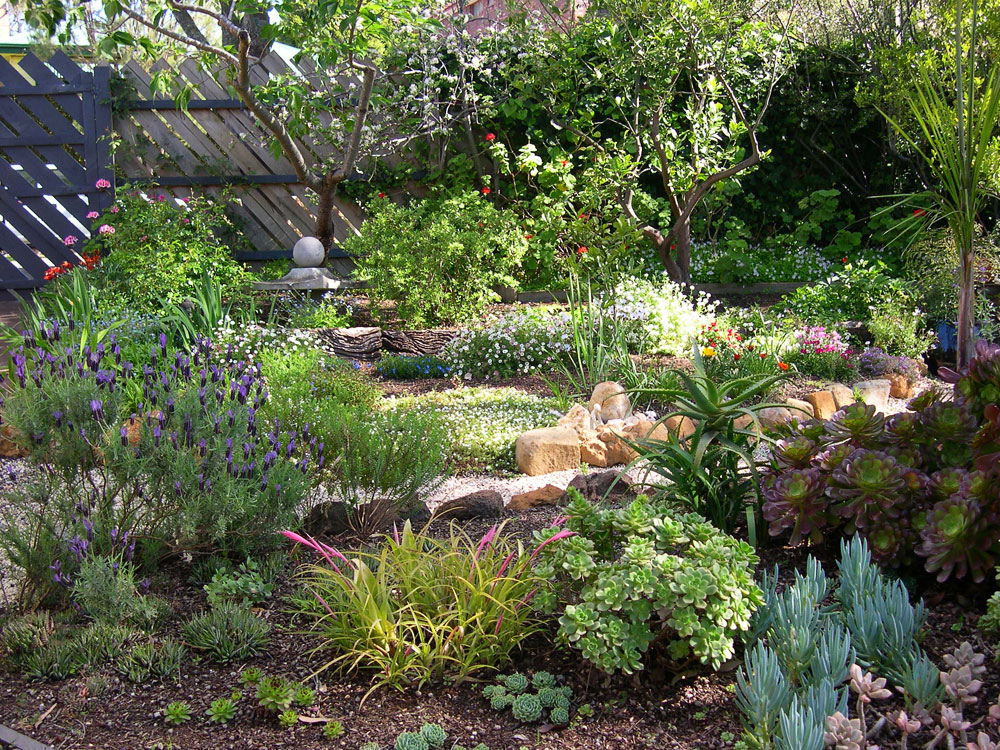
Back to top
|
